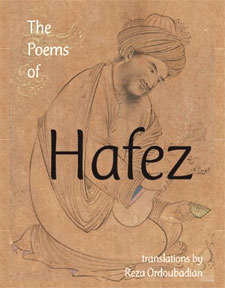
What's love got to do with it?
The revolutionary Shakespeare
June 27, 2007
iranian.com
In San Francisco, where I live, the 40th anniversary of the “Summer of Love” is fondly remembered -- not just by the local newspaper that has written copiously about it, but also especially by those of us old enough to have been present. Thus it was that recently on the number 45 bus to downtown, my neighbor and I talked not about work but about her college classmate at Michigan, Libby Appel. My neighbor noted that Libby, in her valedictory season as the Artistic Director at the Oregon Shakespeare Festival, was promising “another Summer of Love.”
Appel proffered The Tempest as the tale of “forgiveness, reconciliation and love,” The Taming of the Shrew as the story of “two spirited and stubborn individuals who discover love and respect for each other,” and Romeo and Juliet as the embodiment of “star crossed lovers.” My neighbor and I, it turned out, were both going to Ashland soon, not the least for remembrance of times past. Of course, it was Romeo and Juliet which was the most relevant and timely.
 How felicitous that Romeo and Juliet is directed by Appel’s designated successor. The esteemed company that she has helped build deserves special accolades for this magnificent production. OSF’s future looks even brighter. Pivoting the play on the juxtaposed reactions of both Juliet and Romeo to the verdict of his punishment for killing Juliet’s cousin, Tybalt, is a master stroke. “Banished!” as a refrain used by the actors in that scene resonates the full tragic feeling of the play. The exile of the living is made touchingly more painful than the death of the dead. With a heart-rending performance on the opening night, Christine Albright gave birth to a star in her Juliet. How felicitous that Romeo and Juliet is directed by Appel’s designated successor. The esteemed company that she has helped build deserves special accolades for this magnificent production. OSF’s future looks even brighter. Pivoting the play on the juxtaposed reactions of both Juliet and Romeo to the verdict of his punishment for killing Juliet’s cousin, Tybalt, is a master stroke. “Banished!” as a refrain used by the actors in that scene resonates the full tragic feeling of the play. The exile of the living is made touchingly more painful than the death of the dead. With a heart-rending performance on the opening night, Christine Albright gave birth to a star in her Juliet.
The eager production team could be excused for thinking that differentiating costumes -- the older characters wearing the renaissance Verona’s, the younger some version of preppy contemporary -- would channel Shakespeare’s presumed message of the gap of the ages. That presumption, however, is wrong. In what matters there is no generational gap in the play. The feud between the Montague and Capulet families continues as the gang attraction of male bonding persists. The gap is between the sole young lovers and their pre-modern age.
In the late 16th Century cultural discourse between the traditional and the Petrarchan (after the 14th Century Italian poet, nee Francesco di Petracco) ideal, Shakespeare broke grounds by offering a third alternative. The reification of desire is the message in Romeo and Juliet. That their marriage is consummated in her parents’ house trumpets Juliet’s defiance of the convention of a daughter’s obedience. That Romeo returns to her after revenging Mercutio’s death signifies his liberation from the gang mores; earlier he had also jettisoned his Petrarchan love for the never seen or heard Rosaline.
It is the celebration of desire, projecting individualism, which marks Romeo and Juliet. This is the revolutionary contribution of Shakespeare to the culture of his time. It is in that sense that he is modern. The message of 1967 is remarkably similar. Sexual freedom was just one manifestation of the broader culture of individualism. The desire for emancipation from the leaded values of the post war years was not limited to the youth, although they were the vanguard. Comment
Keyvan Tabari is an international lawyer in San Francisco. He holds a PhD and a JD, and has taught at Colby College, the University of Colorado, and the University of Tehran.
References
* Barzun, J. (2001) ‘Petrarch’, From Down to Decadence, pp. 48-52. New York: HarperCollons.
* Paster, G.K. (1992) in B. Mowat and P. Werstine (eds) Romeo and Juliet, pp. 253-65. New York: Washington Square Press.
* Rauch, B. (2007) in OSF, Playbill II: p. 44.
* Varble, B. (2007) ‘Trio of classics plays outdoors’, Mail Tribune June 15.
|